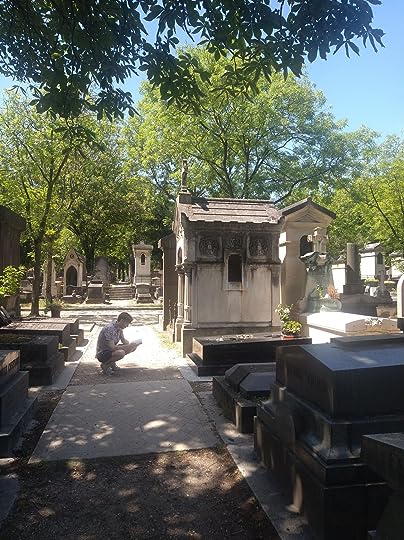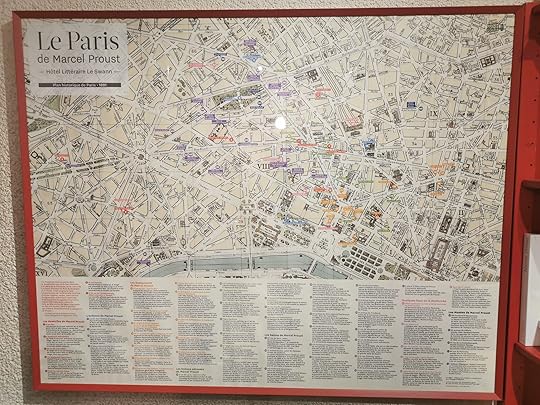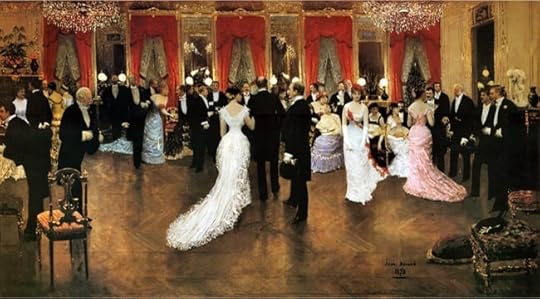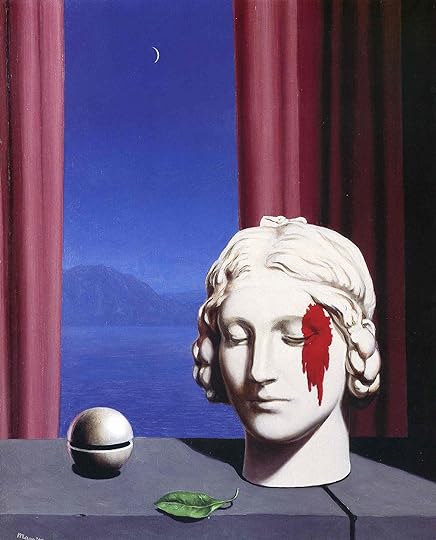What do you think?
Rate this book


784 pages, Paperback
First published January 1, 1927
Furthermore my frivolity, the moment I was not alone, made me eager to please, more eager to amuse by chattering than to acquire knowledge by listening, unless it happened that I had gone out into society in search of information about some particular artistic question or some jealous suspicion which my mind had previously been revolving. Always I was incapable of seeing anything for which a desire had not already been roused in me by something I had read, anything of which I had not myself traced in advance a sketch which I wanted now to confront with reality.
And if there is something of aberration or perversion in all our loves, perversions in the narrower sense of the word are like loves in which the germ of disease has spread victoriously to every part.
But it is sometimes just at the moment when we think that everything is lost that the intimation arrives which may save us; one has knocked at all the doors which lead nowhere, and then one stumbles without knowing it on the only door through which one can enter – which one might have sought in vain for a hundred years – and it opens of its own accord.


“La verdadera vida, la vida al fin descubierta y dilucidada, la única vida, por lo tanto, realmente vivida es la literatura”Todo empezó allá por el año 1 a.c. (antes del confinamiento) y termina rozando el año 1 d.c., casi dos años entre una magdalena y un mal paso provocado por la desigualdad en el nivel de unos adoquines, nimiedades que, sin embargo, abrieron un mundo nuevo al autor, que le reconciliaron con la vida cuando ya veía venir la muerte.
“La obra de arte era el único medio de recobrar el tiempo perdido”Y, por tanto, el arte fue la piedra filosofal que le hizo recuperar el pasado (“los verdaderos paraísos son los paraísos que hemos perdido”) y, por tanto, a toda la gente que pasó por su vida y que ahora le parecían “que habían vivido una vida que sólo a mí había beneficiado, me parecía como si hubieran muerto por mí”, y, por tanto, todo el dolor, todo el sufrimiento experimentado, que no es sino el alimento del artista.
“Cuando un insolente nos insulta, seguramente preferiríamos que nos alabara, y sobre todo, cuando una mujer nos traiciona, ¡qué no daríamos porque no fuera así! Mas el resentimiento de la afrenta, los dolores del abandono serían entonces las tierras que nunca conoceríamos y cuyo descubrimiento, por penoso que le sea al hombre, resulta precioso para el artista.”







 come to my blog!
come to my blog!"في الحقيقة كل قارىء عندما يقرأ هو قارئ نفسه. وما كتاب الكاتب إلّا نوع من الأدوات البصرية التي يقدمها للقارئ كي يتيح له أن يستوعب ما لم يره هو وحده، لولا هذا الكتاب."


"لا شيء أكثر إيلاماً من ذلك التعارض بين تغيّر البشر وثبات الذكرى."
"إن الأزمنة التي عاشوها متباينة جداً، وتخلّلتها أيام وأيام عبر الزمان."






Fragments of existence withdrawn from Time: these then were perhaps what the being three times, four times brought back to life within me had just now tasted, but the contemplation, though it was of eternity, had been fugitive. And yet I was vaguely aware that the pleasure which this contemplation had, at rare intervals, given me in my life, was the only genuine and fruitful pleasure that I had known.I do not agree with everything Proust has said, but what I do is of immense value and phenomenal insight. I do not view my loves the way Proust did, but much of it I recognize in parts of pain and parcels of profundity, and will color my effects forever on. Ever so often I snorted and sneered at his pompous pratfalls, and more times than I can count was I lost in a rapture of sight, of sound, of trains of lines of letters flitting this way and that over coursing streams of thought and form and sometimes, sometimes, the very soul of a name, a place, a pleasure. I have spent a longer length of effort in his pages than I have with any other author, a plunge that was in no way previously prepared for to any practical extent. Fifteen hundred and fifty-six people there are now in '2013: The Year of Reading Proust' group, and the percent I've interacted with is a mere smidgen of a handful of a precious few. I am a poor player in the daily discussion realm, but I do hope that my small contribution of reviews have helped.
Sweet Sunday afternoons, beneath the chestnut-tree in our Combray garden, from which I was careful to eliminate every commonplace incident of my actual life, replacing them by a career of strange adventures and ambitions in a land watered by living streams, you still recall those adventures and ambitions to my mind when I think of you, and you embody and preserve them by virtue of having little by little drawn round and enclosed them (which I went on with my book and the heat of the day declined) in the gradual crystallization, slowly altering in form and dappled with a pattern of chestnut-leaves, of your silent, sonorous, fragrant, limpid hours.Adieu, Marcel Proust, adieu. Till we meet again.
-Swann's Way

"Só pela arte podemos sair de nós mesmos (...) é o caminho em sentido contrário, o caminho de retorno às profundidades, onde o que realmente existiu jaz desconhecido para nós, que ela nos levará a percorrer."
"... cada leitor é, quando lê, leitor de si próprio. A obra do escritor não passa de uma espécie de instrumento óptico que ele oferece ao leitor a fim de lhe permitir discernir aquilo que, se não fosse aquele livro, ele porventura nunca veria dentro de si mesmo."
"... o Tempo, o Tempo que habitualmente não é visível e que, para o ser, procura corpos e, onde quer que os encontre, se apodera deles para neles projectar a sua lanterna-mágica."
"Cada pessoa que nos faz sofrer pode ser relacionada por nós com uma divindade da qual não é mais que um reflexo fragmentário e o seu último grau, divindade (Ideia) cuja contemplação nos causa imediatamente alegria, em lugar da dor que sentíamos. Toda a arte de viver consiste em não nos servirmos das pessoas que nos fazem sofrer a não ser como de um degrau que permite aceder à sua forma divina, e assim povoar alegremente a nossa vida de divindades."


"... os nossos maiores temores, como as nossas maiores esperanças, não estão acima das nossas forças, e podemos acabar por dominar uns e realizar as outras."